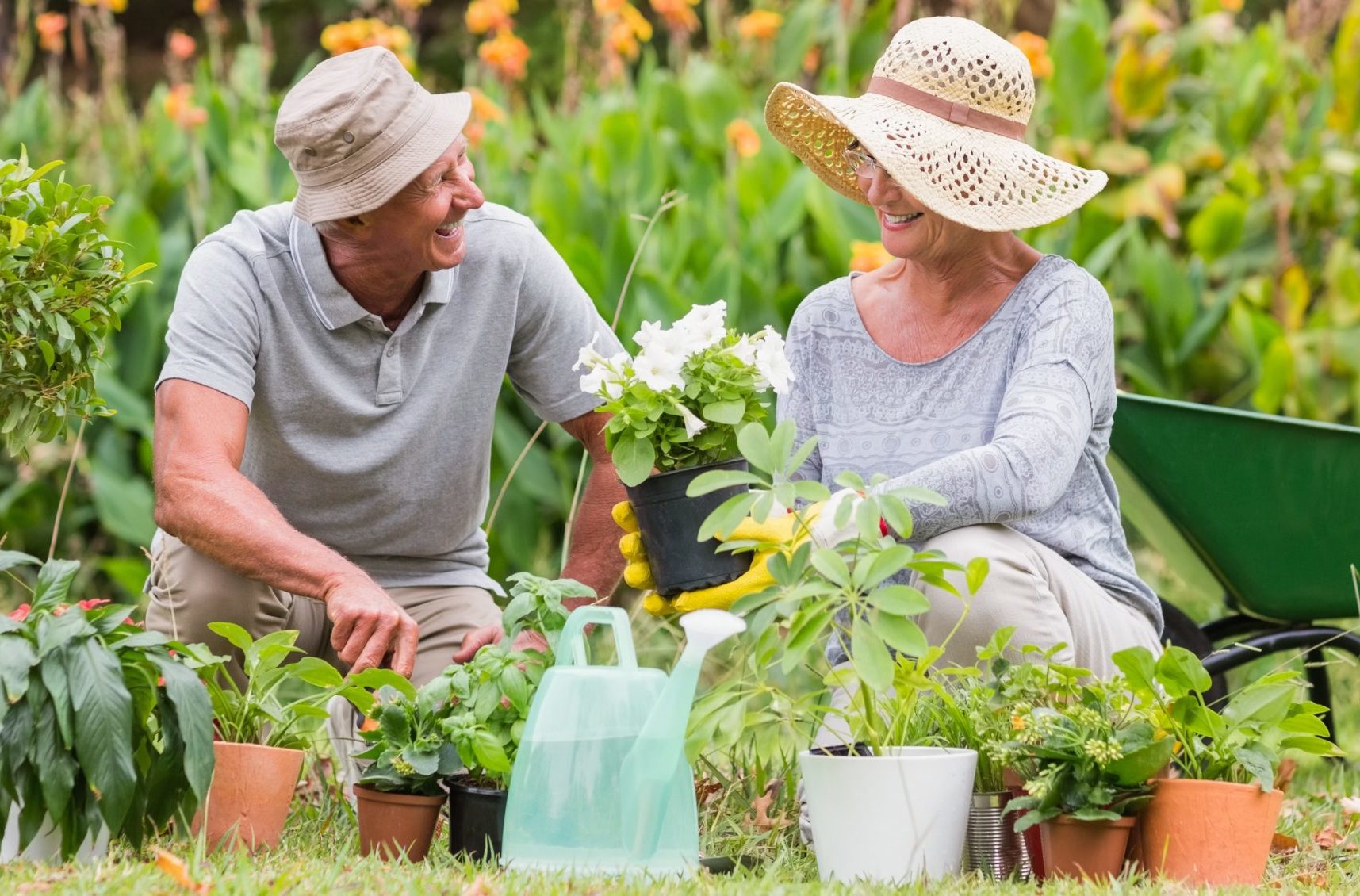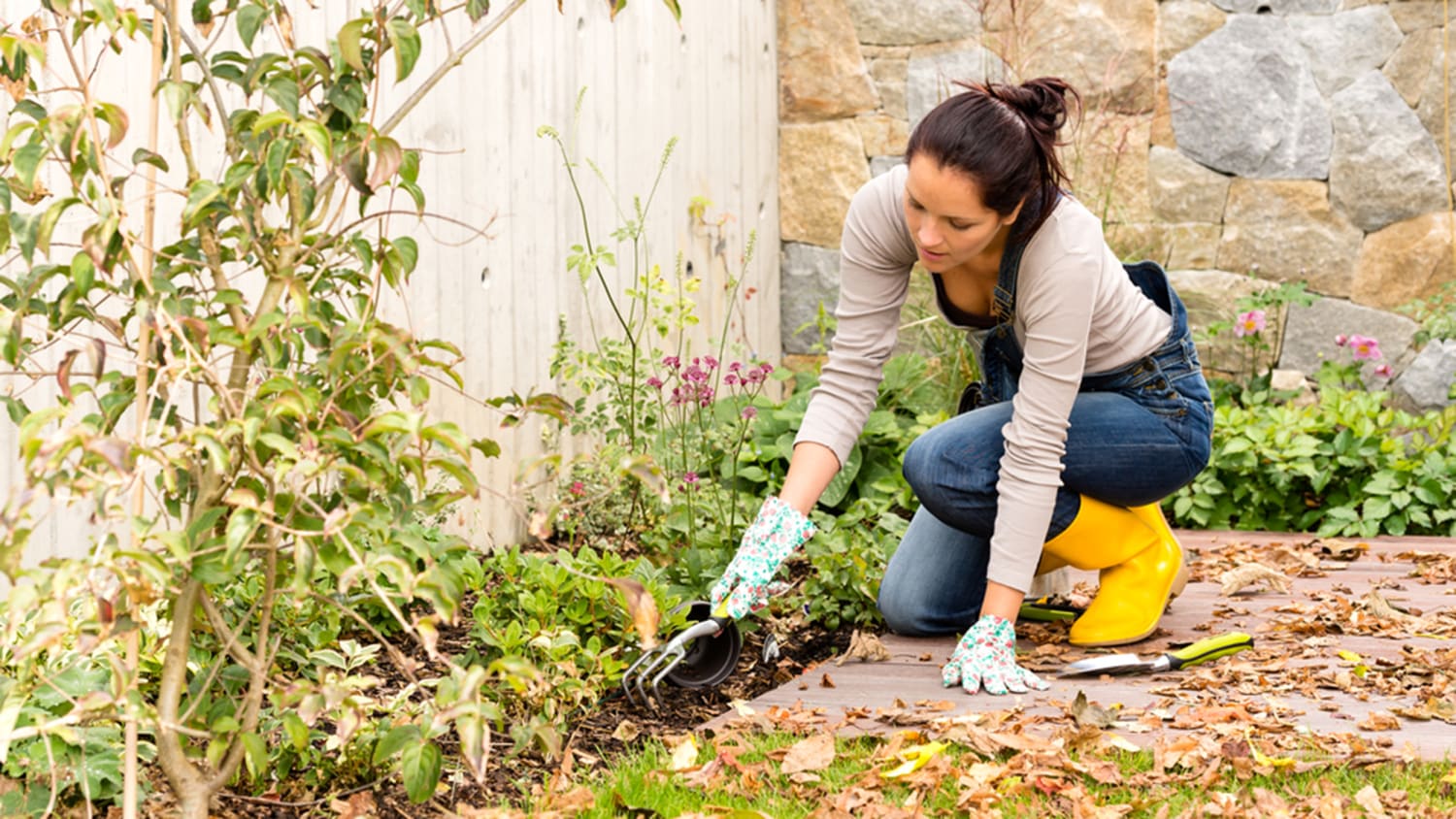Gardening Tips for Beginners: Opening the Potential of Your Green Thumb
Wiki Article
From Beginner to Eco-friendly Thumb: a Novice's Journey Into the Globe of Horticulture
From Amateur to Eco-friendly Thumb: a Novice's Journey Into the Globe of Gardening uses an extensive overview for individuals looking to cultivate their own garden. gardening tips for beginners. From recognizing the fundamentals of plant choice and dirt preparation to fixing usual gardening problems, this publication outfits visitors with the expertise and skills required to change their outdoor rooms into thriving yards.Recognizing the Essentials
The primary step in ending up being an effective garden enthusiast is to realize the essential principles and techniques that create the foundation of horticulture. Comprehending the fundamentals is crucial for any person who wants to expand and support plants properly. Among the basic concepts of gardening is to provide plants with the appropriate growing problems. This consists of considering elements such as sunlight, dirt high quality, water needs, and temperature preferences. Various plants have varying requirements, and it is crucial to study and understand these demands before choosing and growing them in your yard.
Moreover, understanding pest and disease administration is critical for maintaining a healthy and balanced garden. Recognizing common garden pests and illness, in addition to discovering chemical and natural control approaches, can help prevent and treat concerns that may develop.
Picking the Right Plants
To make sure an effective gardening journey, amateur garden enthusiasts should meticulously select plants that straighten with their yard's details expanding conditions. Selecting the right plants is crucial as it identifies the total health and wellness and performance of the yard. Each plant has its own collection of needs, consisting of sunlight, soil kind, wetness levels, and temperature level. By comprehending these needs and picking plants as necessary, gardeners can develop the optimum expanding setting for their plants.Among the very first aspects to take into consideration when selecting plants is the quantity of sunshine offered in the garden. Some plants grow in complete sunlight, while others favor partial or also complete shade. Assessing the quantity of sunshine obtained in various areas of the yard will help establish which plants will grow in each area.
Soil type is another essential factor to consider. Various plants have different dirt preferences, ranging from well-draining sandy soil to moisture-retaining clay dirt. Carrying out a soil examination can give valuable information regarding the pH degree and nutrient web content of the soil, aiding garden enthusiasts choose plants that will grow in their yard's particular soil conditions.
Additionally, water requirements play a considerable function in plant option. Some plants are drought-tolerant and need minimal watering, while others thrive in moist atmospheres. When selecting plants., considering the accessibility of water and the capability to supply adequate irrigation is vital.
Finally, the regional climate and temperature changes have to be considered. Some plants are extra cold-hardy and can stand up to frost and cold temperatures, while others are extra fit to exotic and warm environments. Understanding the environment and picking plants accordingly will ensure their survival and success in the garden.
Preparing the Dirt
Appropriate dirt prep work is essential for novice gardeners to develop a abundant and nutrient-rich structure for their plants. Before growing, it is critical to evaluate the dirt's nutrient, drainage, and structure content to make certain ideal growing problems. Among the initial steps in dirt prep work is removing any kind of weeds or particles from the planting area. This helps stop competition for nutrients and lowers the danger of parasites and diseases. When removed, the soil ought to be loosened up to improve its framework and enable better root growth. This can be done by tilling or excavating the dirt, damaging up any type of compressed areas.It is also vital to check the soil's pH degree to identify its acidity or alkalinity. The majority of plants like a somewhat acidic pH in between 6.0 and 7.0. If the dirt is as well acidic or alkaline, changes such as lime or sulfur can be included in change the pH appropriately.
Including natural issue, such as garden compost or well-rotted manure, is one more important action in dirt prep work. Organic matter boosts dirt structure, improves drainage, and supplies crucial nutrients for plant development. It also serves as a sponge, aiding the soil preserve moisture during completely dry durations.

Nurturing and Preserving Your Yard
After preparing the dirt, novice gardeners can start supporting and preserving their yard to make sure healthy plant growth and a plentiful harvest. Nurturing a garden entails numerous key tasks, including watering, fertilizing, and protecting plants from conditions and bugs.Watering is essential for plant survival, and it is important to offer ample dampness without overwatering. Amateur gardeners should discover about the watering needs of their specific plants and readjust as necessary. It is recommended to water plants in the morning to enable sufficient time for the foliage to dry before nightfall, decreasing the threat of diseases.
gardening for beginners Feeding is another vital aspect of yard upkeep. Amateur garden enthusiasts ought to investigate the particular dietary needs of their plants and select appropriate plant foods. Organic options, such as garden compost or manure, can be valuable for overall plant health and wellness and soil fertility.
Protecting plants from parasites and illness is a constant effort. Routine surveillance, very early detection, and punctual activity are key to avoid substantial damages. Beginner gardeners need to familiarize themselves with usual parasites and illness in their location and learn more about natural or chemical control techniques.
Along with these jobs, routine weeding, trimming, and mulching should not be forgotten. Weeds take on plants for resources, so removing them on a regular basis is essential. Pruning aids shape plants and urges much healthier growth, while mulching preserves wetness, subdues weeds, and regulates soil temperature level.
Troubleshooting Common Horticulture Issues
Garden enthusiasts might encounter numerous usual gardening problems that need troubleshooting to maintain the wellness and vitality of their plants. One usual problem is pest invasion. Pests like snails, aphids, and slugs can unleash havoc on plants, creating damage to fallen leaves, stems, and flowers. Garden enthusiasts can address this issue by making use of organic pest control approaches, such as introducing all-natural predators or using insecticidal soaps.An additional problem that garden enthusiasts frequently encounter is nutrition deficiency. Plants require a balanced supply of nutrients to grow, and deficiencies can cause stunted development, yellowing leaves, and inadequate fruit development. Performing a soil test can aid figure out which nutrients are doing not have and permit garden enthusiasts to amend the dirt appropriately with organic plant foods or garden compost.
Moreover, inappropriate watering techniques can also create troubles in the garden. Overwatering can bring about root rot and fungal illness, while underwatering can create wilting and nutrition imbalances. Discovering the right equilibrium is vital, and garden enthusiasts should monitor dirt dampness levels and readjust watering timetables accordingly.
Last but not least, environment and weather can position difficulties to garden enthusiasts. Severe temperatures, frost, solid winds, and hefty rainfall can damage plants. Protective measures such as using frost covers, windbreaks, and offering color can assist mitigate these concerns.
Final Thought
Finally, this post has given a thorough summary of the journey from being a novice to coming to be an eco-friendly thumb worldwide of horticulture. By recognizing the essentials, choosing the right plants, preparing the soil, and nurturing and maintaining the yard, newbies can get over typical horticulture problems and efficiently cultivate their very own rich and vibrant gardens. With commitment and practice, anyone can create the skills and understanding essential to end up being a competent garden enthusiast.Various plants have differing requirements, and it is crucial to study and comprehend these needs prior to selecting and growing them in your garden.
By recognizing these needs and choosing plants appropriately, garden enthusiasts can develop the ideal growing setting for their plants. home gardening for beginners.
Various plants have different soil choices, varying from well-draining sandy soil to moisture-retaining clay dirt. Conducting a soil examination can offer useful info regarding the pH degree and nutrient web content of the soil, assisting gardeners pick plants that will thrive in their garden's details soil conditions.
By recognizing the fundamentals, picking the right plants, preparing the soil, and nurturing and maintaining the garden, newbies can conquer common horticulture problems and successfully cultivate their own lavish and dynamic yards.
Report this wiki page